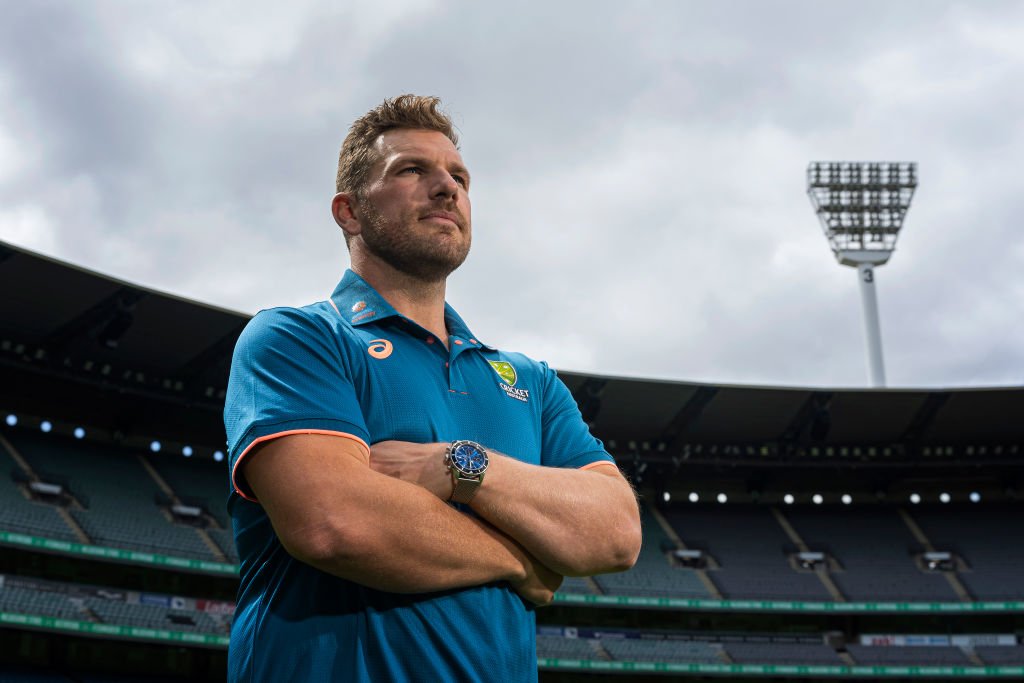
Former Australian captain Aaron Finch recently voiced his disagreement with cricket legend Sunil Gavaskar’s take on Rohit Sharma’s role as captain for the Border-Gavaskar Trophy (BGT). Gavaskar had questioned whether Rohit should be leading India during the series, suggesting potential alternatives, especially if Sharma might miss games due to personal reasons. However, Finch firmly defended Rohit’s leadership, asserting that as the designated captain, there should be no debate over his place in the BGT, provided he is available.
Finch’s viewpoint stems from his belief in consistency and stability in leadership roles, especially in high-stakes series like the BGT. He argued that Rohit has a solid track record as captain and is familiar with the dynamics of the team and the competitive pressures of the series. This consistency, Finch emphasized, is crucial to achieving success, as a team led by a familiar captain operates with a clear sense of direction. He also implied that constant speculations about the captaincy could create unnecessary distractions for the players, potentially affecting their focus and performance.
Rohit Sharma’s leadership credentials have often been highlighted, with several records to his name, particularly in white-ball cricket. Although Rohit’s form in the Test arena has been under scrutiny, his experience and tactical acumen in handling high-pressure games make him an ideal leader in the BGT, according to his supporters, including Finch. The BGT series, which is known for its intensity and historic rivalry, would benefit from having a stable figure at the helm to guide the team through the unpredictable nature of Test cricket, which can often pivot due to one session of inspired play.
Furthermore, Finch emphasized that Rohit’s relationship with the team and his knowledge of each player’s strengths and weaknesses are assets that an interim or inexperienced leader might lack. A Test series requires a deep understanding of each player’s game, particularly when navigating complex tactical situations over five-day matches. This understanding enables a captain to make quick and informed decisions on the field, enhancing the team’s adaptability and resilience in challenging situations.
Sunil Gavaskar’s concerns, however, stem from his broader view on India’s approach to Test captaincy and their search for a potential successor. Gavaskar has previously voiced his opinion on nurturing younger players and grooming future leaders in Test cricket. Although he acknowledged Rohit’s contributions, Gavaskar suggested that India should be prepared for scenarios where an alternate captain might be necessary, especially with upcoming talents who could be developed as long-term leaders.
Despite Gavaskar’s perspective, many cricket analysts and former players side with Finch’s opinion, believing that changing the captaincy structure ahead of a major series could disrupt team unity. Rohit’s performance in Tests has been improving, and his tactical decisions have gained praise in recent games, adding weight to Finch’s argument. For fans and experts, Rohit leading India in the BGT could bring an element of consistency, and a successful series under his captaincy could further solidify his place as one of India’s finest leaders.
Additionally, Finch’s unwavering support for Rohit reflects his understanding of leadership challenges and his admiration for how Rohit has handled the pressure. Rohit’s contributions to Indian cricket, both as a player and a leader, have significantly shaped the team’s recent successes. Having shown resilience, tactical intelligence, and the ability to connect with players, Rohit has built trust within the team—a quality Finch believes is crucial for sustained performance in high-stakes series like the BGT.
The Finch-Gavaskar discussion also brings attention to broader issues in cricket, such as the balance between experience and the need to nurture future leaders. Gavaskar’s call for exploring captaincy alternatives isn’t unfounded, as it emphasizes the importance of succession planning in maintaining a strong leadership pipeline. Finch’s comments, however, underline the value of continuity and the importance of a focused team environment, suggesting that any decisions around leadership should consider both the long-term goals of the team and the immediate requirements of major tournaments like the BGT.
Ultimately, Finch’s remarks highlight the importance of leadership stability and trust in the designated captain, especially during critical series like the BGT. His statement reflects an understanding of the pressures associated with leadership roles in cricket and a belief that consistent captaincy is essential for any team to thrive, especially when dealing with formidable opponents like Australia. As the BGT approaches, Rohit Sharma’s leadership, strategy, and ability to rally the team will be instrumental in India’s performance against one of their fiercest rivals, and fans worldwide will be keen to witness how he leads his side in this celebrated cricket showdown.

